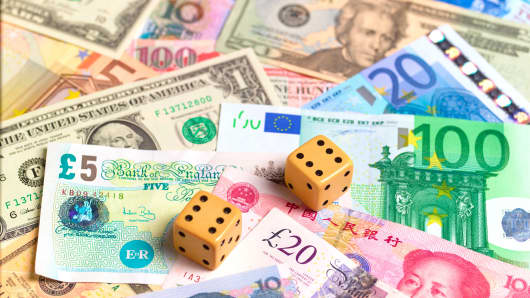Talk of currency wars is everywhere these days, what with central banks from Japan to Sweden cutting interest rates, and many other countries hinting at same.
But the real problem is something subtler, said John Lipsky, a former top IMF official and now a distinguished visiting scholar at the Paul H. Nitze School of Advanced International Studies.
"When the crisis erupted, the institutional innovation was the G20 leaders' summit, to bring together leaders not just of the G5 or the G7 or even the G8, but the G20," he told CNBC. "One of the key goals was to produce improved economic performance and policy cooperation. What seems to be happening today is much more everybody for themselves."
That's a problem, Lipsky said, because investors have to operate with a lot less certainty. A lack of cooperation, he said, "creates the risk of what you call currency wars, but let's call it greater potential instability in markets because of worries about incoherence or inconsistency of policies."
In other words, countries are racing to lower interest rates in a bid to stay more competitive than their neighbors, it puts the overall economy at greater risk of disruption.
(Read more: Quantitative Easing: CNBC Explains)
"It's important that leaders once again insist on a cooperative approach that will build confidence, not produce conflict," he said.
Lipsky's comments follow on a warning about currency warns earlier in the week from Jens Weidmann, Germany's Bundesbank chief and a European Central Bank policymaker. In a speech at a Deutsche Boerse New Year's event, he warned that ""Already alarming violations can be observed, for example in Hungary or Japan, where the new government is interfering massively in the business of the central bank with pressure for a more aggressive monetary policy and threatening an end to central bank autonomy."
Be careful out there.



